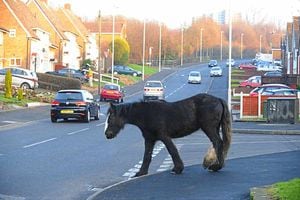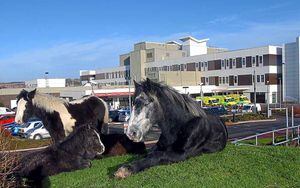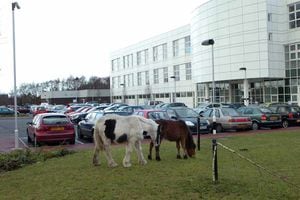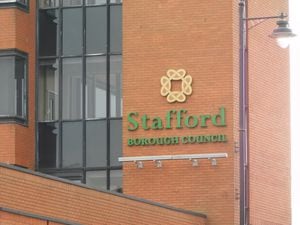Neigh bother as stray horses are reined in
They've trampled over gardens, destroyed parkland and given many a driver a shock after wandering out into the road.
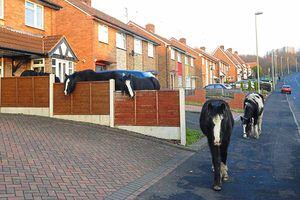
But it seems that after years of stray horses causing a nuisance around the Black Country, they are finally being reined in with councils reporting a significant drop in numbers.
There have been fewer sightings of the animals roaming Sandwell and Dudley with the number collected from streets and open spaces falling by 32 per cent overall compared with the previous year and more than 60 per cent compared with 2013. Numbers have fallen from an average of around 200 a year in 2013 to 74 in 2015/16 with the majority of animals collected later re-homed.
New laws were introduced last year making it easier for councils and the RSPCA to take action against owners who abandon their animals, which bosses say is making a difference.
In Sandwell there were 29 horses rounded up from streets in 2015/16 – down from 47 during the previous 12 months.
Education
Councillor Paul Moore, cabinet member for regeneration and investment, said: "There is a drop in the numbers which we believe is down to better education of horse owners since the new act came into force. This is also a cyclical problem which results in the figures varying from year to year. However owners must know that illegally-tethered horses on council-owned land will not be tolerated."
In Dudley a total of 45 horses found roaming roads and grass areas during 2015/16 – down from 51 in 2014/15.
More than 600 were collected from the two boroughs between 2011 and 2014.
Areas plagued by stray horses in recent years have included Fens Pool nature reserve, Pensnett, and land around the Russells Hall estate including the hospital in Dudley.
Council bosses said work to raise awareness about the welfare of animals was helping to reduce the number of strays.
Matt Williams, Dudley Council's chief officer for environmental services, said: "We have seen a small drop in the number of stray horses in the borough, due in part we think to our proactive stance in terms of enforcement and removal of animals.
"We are pleased to see this decrease but we will continue to educate and enforce where necessary so as to ensure the welfare of any stray animals and to reduce the burden on the tax payer who foot the bill for their security and care."
Horses are seized and if the owner cannot be contacted or does not come forward with ownership proof and settle fines, they are found new homes.
RSPCA spokeswoman Rachel Butler said: "The RSPCA believes the Control of Horses Act has been a positive step forward.
"It means that local authorities or private landlords can act immediately to take action against horses left illegally and we have seen where local authorities have used the Act that it has been an effective deterrent to fly-grazing of horses and can be a useful tool in promoting responsible equine ownership. The RSPCA believes that nationally there are at least 3,000 horses currently being fly-grazed – a slight reduction of five per cent in the past year.
"We are aware of at least 20 local authorities that have used the Act and we have seen real progress on reducing the numbers of horses being fly grazed in parts of the country." The new laws mean that owners who graze their animals on private land can have their horses seized by the landowner and either sold or otherwise removed within just four days. They can also be charged for any damage to the land as well as for the care of the horses.
